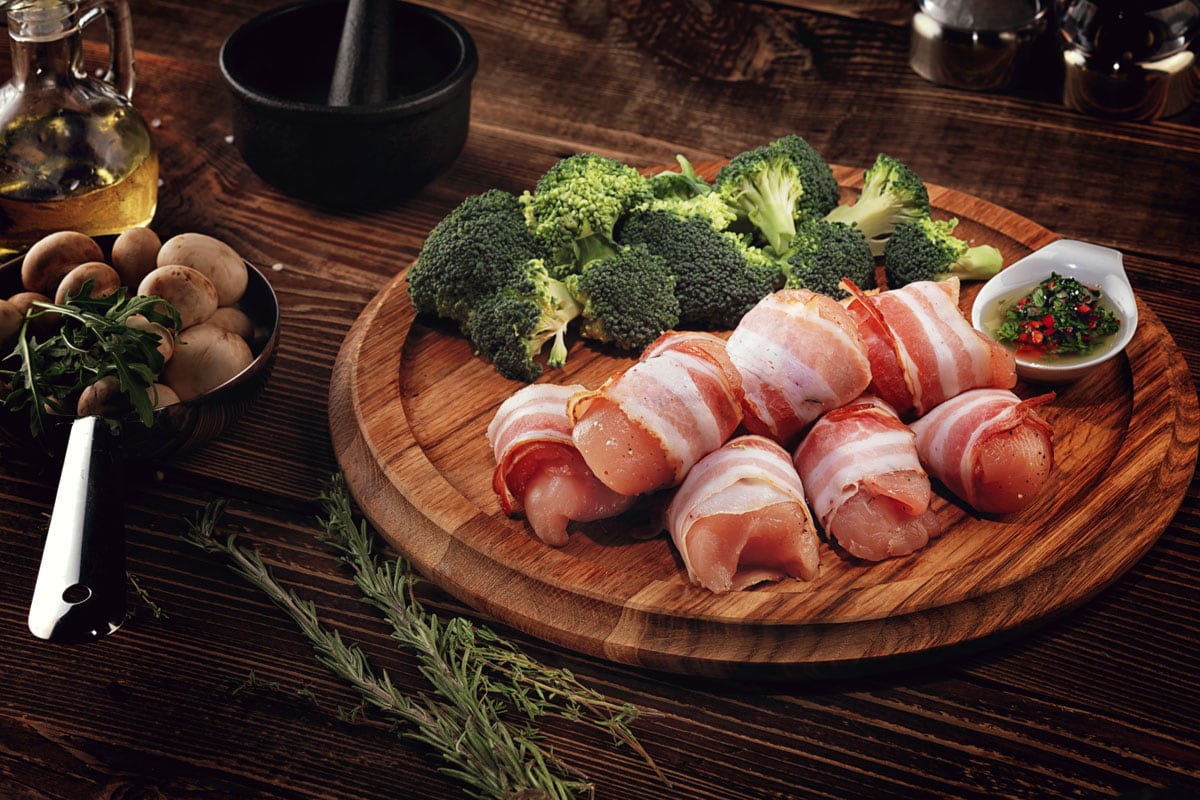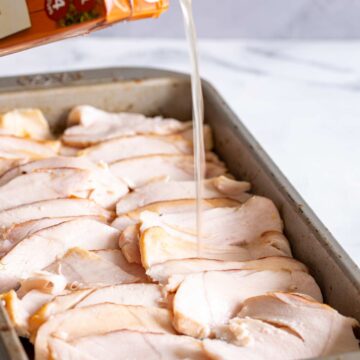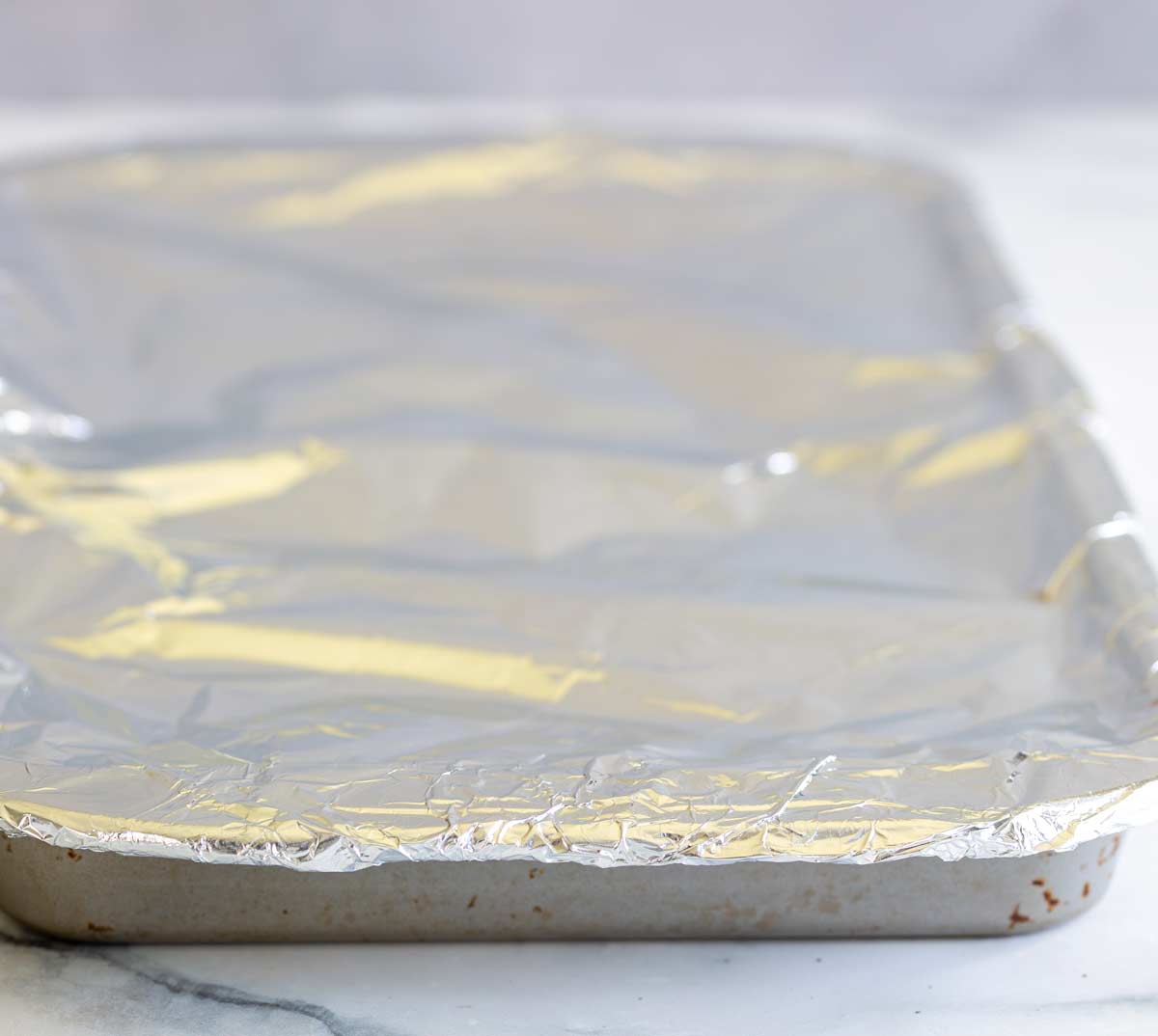Thanksgiving and Christmas are about family, friends, and food. And as the centerpiece of many holiday feasts, the turkey is a crucial element of the meal.
However, cooking a turkey can be challenging for even the most experienced home cooks. I have overcooked a few in my time! I know how disappointing and frustrating it is when youve put in so much effort to prepare a delicious holiday meal.
When a turkey is cooked too long, the meat can become dry and tough, making it difficult to enjoy. Additionally, overcooked turkey can be less flavorful, as the heat can cause the natural juices to evaporate. Today, I want to share my top tip for how to save an overcooked turkey and sitting down to a great meal with your family and friends.
When cooking a holiday feast, broth or stock is your best friend!! That and a bit of butter!
If you can find it, turkey broth is the best option, followed by chicken and vegetable broth/stock.
It doesnt have to be a carton; you can prepare some using a chicken or turkey bouillon base like “Better than Bouillon.”
As Thanksgiving approaches, home cooks everywhere are preparing to roast the star of the holiday meal – turkey. But under the pressure of hosting, even experienced cooks can end up with a chewy, rubbery bird. If you’ve ever carved into a turkey and been met with tough, dry meat, you know how disappointing it can be.
So why does turkey turn out chewy and what can you do to ensure tender, juicy meat every time? Read on for an in-depth guide to identifying the causes and mastering the secrets to cooking the perfect turkey.
Common Causes of Chewy, Rubbery Turkey
There are a several common culprits behind tough chewy turkey
-
Overcooking – The number one reason turkey dries out is overcooking. Turkey breast especially can go from juicy to chewy quickly.
-
Not brining – Skipping the brining step means the turkey won’t absorb as much moisture
-
Improper thawing – Thawing too quickly leads to uneven cooking.
-
Not letting rest – The turkey needs time to reabsorb its juices after cooking.
-
Cooking from frozen – A frozen turkey takes longer to cook, increasing risk of overcooking.
-
Not trussing – Untrussed turkeys cook unevenly, leading to dry meat.
-
crowded pan – Without space for air circulation, the turkey steams instead of roasts.
With so many potential pitfalls, it’s easy for even seasoned cooks to end up with chewy results. But there are proven solutions to help you succeed.
Step 1: Brine the Bird
Brining is absolutely essential for moist, tender turkey. Immersing the turkey in a saltwater solution allows the meat to absorb extra moisture and seasoning.
Dissolve 1/2 cup salt per quart of water. Submerge the turkey and refrigerate 12-24 hours. Pat dry before roasting. Equilibrium brining with a measured amount of salt per quart of water prevents over-salting.
If you don’t want to brine, rub the turkey cavity with salt before roasting. But for best results, take the time to brine. It makes a dramatic difference.
Step 2: Thaw Properly
Always thaw frozen turkeys slowly in the fridge to prevent uneven cooking. Place the turkey breast-side up in a pan to catch any leaks as it thaws over 2-3 days.
If short on time, do a cold water thaw. Submerge the turkey in cold water, changing the water every 30 minutes until thawed. Calculate 30 minutes per pound.
Microwaving to thaw quickly damages the meat, causing it to cook unevenly. Never thaw on the counter, where bacteria multiply rapidly.
Step 3: Truss for Even Cooking
Trussing shapes the turkey for more even cooking. Tuck the wings under and tie the legs together with kitchen string before roasting.
Without trussing, the thinner breast and leg meat overcooks faster than the thicker thighs and drumsticks. Trussing prevents uneven cooking so no part dries out.
Step 4: Roast at the Right Temperature
Cook the turkey at 350°F on a V-rack in a roasting pan, allowing air to circulate completely around the bird. Tent with foil to prevent over-browning if needed.
Higher temperatures cause the delicate breast meat to dry out before the dark meat cooks through. Low, slow roasting gives you the most time before the turkey overcooks.
Step 5: Monitor Temperature
Being vigilant with a meat thermometer is the only way to know exactly when your turkey reaches the safe minimum internal temperature of 165°F.
Insert the thermometer into the thickest part of the breast without touching the bone. Once the turkey hits 165°F, immediately remove it from the oven. The temperature will continue rising as it rests.
Step 6: Let It Rest
After roasting, let the turkey rest at least 30 minutes before carving. This critical step allows the juices to redistribute evenly.
Carving too soon causes the juices to run out, leaving you with dry, chewy meat. Allowing time to rest finishes the cooking process for tender, succulent turkey.
Step 7: Carve Properly
Use the right technique when carving to keep the breast meat as intact as possible. First remove the legs and thighs by cutting through the hip joints.
Then slice the breast meat off the bone in thin pieces. Scoop out the oysters – the two succulent morsels on the turkey’s back.
Slicing through the whole breast halves causes the deliciously juicy meat to shred, rather than cutting it into perfect slices.
Mastering the Turkey Basics
Follow these simple steps for guaranteed tender, mouthwateringly moist turkey:
- Brine the bird
- Thaw slowly
- Truss tightly
- Roast low and slow
- Cook to 165°F
- Let rest before carving
- Carve carefully
With proper preparation and cooking, you’ll never have to contend with chewy, rubbery turkey again. Now let’s get into more specific ways to troubleshoot.
Overcooking – The #1 Cause of Chewy Turkey
Turkey breast meat dries out quickly because it has less fat and collagen than thigh and leg meat. Monitoring the temperature and removing the turkey from the oven before it exceeds 165°F is crucial.
The carryover cooking effect means its internal temperature will continue rising 5-10 degrees after taken out of the oven as the heat evenly distributes. Resting completes this process.
If using an un-brined turkey, err on the side of undercooking at 160°F-165°F to keep the breast meat as juicy as possible. Remember you can always cook it a bit more if needed.
Inadequate Brining Causes Dry Turkey
Skipping brining is one of the biggest mistakes when cooking turkey. During brining, the turkey breast soaks up to 10% of its weight in water.
All this excess moisture prevents the lean breast meat from drying out during roasting. Make brining your default for holiday turkeys and never look back.
Thawing Pitfalls Lead to Uneven Cooking
Improperly thawing a frozen turkey wreaks havoc. Microwaving causes the meat to cook unevenly, because the outside defrosts first while the middle stays frozen.
Thawing on the counter also creates uneven cooking because the outer layer comes to room temperature faster. Bacteria multiply rapidly above 40°F.
For evenly cooked, tender turkey, always thaw gradually in the fridge over several days. This equals 1 day for every 4 lbs of turkey.
Skipping Resting Means Dry Turkey
You’ve heard it before, but it bears repeating: resting the turkey is imperative! Resting completes the cooking process by allowing the juices to redistribute.
If you carve into the turkey right away, the juices spill out onto the cutting board instead of staying in the meat. Waiting at least 30 minutes after roasting helps lock in moisture.
Trussing Prevent Uneven Cooking
A trussed turkey maintains its shape, preventing the thinner breast meat from overcooking faster than the legs and thighs.
The legs often stick out and cook quicker in an untrussed bird. Meanwhile, the breast meat dries out before the dark meat finishes cooking.
Take a few minutes to truss for even roasting. Use kitchen string or silicone trussing bands to tie the legs together and wings in.
Give Turkey Space for Perfect Roasting
Allow ample space around the turkey for air circulation as it roasts. Place turkey on a V-rack in a roasting pan with at least 2 inches clearance all around.
Crowding the pan causes the turkey to steam and boil in its juices rather than roasting. Steaming prevents browning and leads to a rubbery texture.
Give your turkey breathing room so it can roast beautifully.
Don’t Roast a Frozen Turkey
Never cook a fully frozen turkey! Frozen birds take significantly longer to fully roast, leading to overcooking.
The turkey’s outer sections will burn before the inside cooks through. Only cook turkeys that have been fully thawed in the refrigerator.
The Importance of Using a Meat Thermometer
Because poultry cooks unevenly, appearance is not a reliable indicator of doneness. The only way to confirm your turkey has reached a safe internal temperature is to use a meat thermometer.
Check in a few places – the thickest part of the breast, innermost part of the thigh, etc. The lowest reading should be 165°F before removing the turkey.
Investing in a good oven-safe thermometer takes the guesswork out of roasting turkey. Never rely on the pop-up indicator alone either. Use a thermometer for success.
Additional Turkey Troubleshooting
Q: Why is the turkey breast dry and legs undercooked?
A: This happens due to uneven cooking. Ensure the turkey is trussed, leave

And if all else fails
Have another drink and eat all your delicious sides. I promise that it is just a hiccup and youll laugh about it one day.
If you try this recipe, please come back and comment. You can also tag me on social media.
Any questions about the recipe? Use the comments section below.

Using broth to moisten the turkey
If your turkey breast meat is overcooked, first things first if you drink, pour a glass of wine and remember that everyone is there to celebrate the holidays, and that is all about family and friends. So take some deep breaths and move on. You cant go back and cook it less, but you can make it taste good.
Slice the turkey breast and lay it into a roasting dish. Drizzle over 2 tablespoons of melted butter, and then take your broth/stock and pour it over the slices.
How much broth you need depends on the size of your turkey and how overcooked it is! But I work on around 1 cup per breast, so 2 cups per whole turkey.
Cover the dish with aluminum foil and seal the edges well. Then place in the oven at 200ºF/90ºC for 15 minutes. The turkey will soak up the broth/stock.
Next, pull the meat from your turkey legs. Usually, if the breast is overcooked, the legs are perfectly cooked!
Add the leg meat to another dish, add ¼ cup of broth, seal the dish the same way, and place it in the oven to keep warm.

To serve the sliced turkey, lay the slices onto a serving dish and arrange the leg meat in one corner. Take ¼ cup of your hot gravy and add 2 tablespoons of hot broth, stir to thin the gravy, and then drizzle it all over the slices of turkey.
Why is my turkey chewy?
FAQ
How do you fix a chewy turkey?
Why is my turkey so rubbery?
Why is my turkey meat so tough?
Why is my turkey not tender?
Why is my Turkey chewy?
There are a few possible reasons why turkey is chewy. * Undercooked turkey. The most common reason for chewy turkey is that it is not cooked long enough. The USDA recommends cooking a whole turkey to an internal temperature of 165 degrees Fahrenheit. If the turkey is not cooked long enough, the meat will not be fully cooked and will be chewy.
How to prevent a chewy Turkey?
A cooking bag will help to keep the turkey moist and tender. * Carve the turkey immediately after it is cooked. This will help to prevent the juices from escaping, which will keep the meat moist. If you follow these tips, you should be able to prevent a chewy turkey. there are a number of reasons why your turkey may be chewy.
Is a low quality Turkey chewy?
A low-quality turkey will be more likely to be chewy than a high-quality turkey. There are a few things you can do to prevent chewy turkey. * Cook the turkey to the proper temperature. The USDA recommends cooking a whole turkey to an internal temperature of 165 degrees Fahrenheit. This will ensure that the turkey is cooked through and not chewy.
Why is my Turkey so tough?
A bland turkey is not only disappointing but also more likely to be tough. Seasoning the turkey generously with salt, pepper, and your favorite herbs and spices not only enhances the flavor but also helps to tenderize the meat. If you cram too much into the roasting pan, the turkey will not cook evenly and may end up with tough, undercooked spots.
